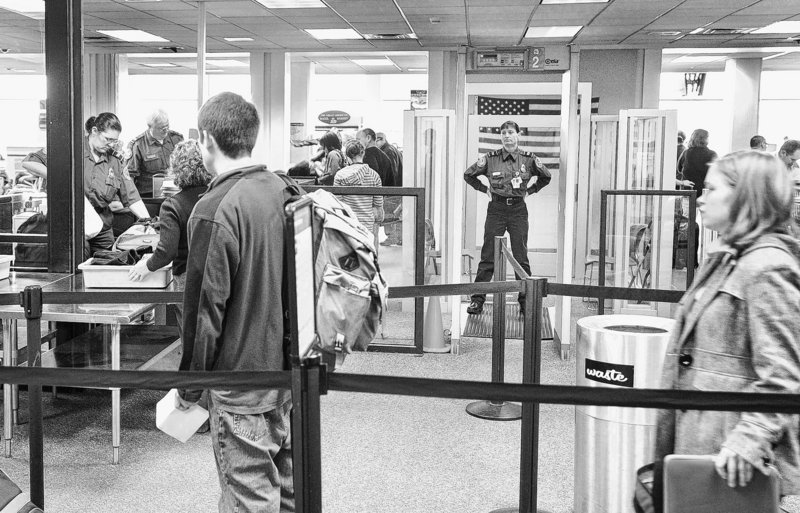WASHINGTON D.C. – Maine became permanently linked to the terrorist attacks of Sept. 11, 2001, when Mohammed Atta and Abdulaziz Alomari boarded an early morning flight from the Portland Jetport to Boston, setting in motion the worst terrorist attack in American history.
That evening, members of Congress came together on the steps of the U.S. Capitol to express unity. With tears in our eyes and sorrow in our hearts, we sang “God Bless America.” A day that began with shock and anger ended with unity and resolve.
We resolved to ensure our country has the tools and wherewithal to deter and detect future plots and to identify people who would do us harm. Working with Sen. Joe Lieberman, I authored the Intelligence Reform and Terrorism Prevention Act to reorganize the 17 separate organizations of the intelligence community and to change their culture from “need to know” to “need to share” so we could increase the likelihood that agencies would “connect the dots” to thwart future attacks.
The operation that killed Osama bin Laden was the kind of successful collaboration of intelligence and operations that we envisioned.
WORK NOT DONE YET
That is not to say, however, that our work is done. As we saw in 2009 with the Christmas Day bomber and the Fort Hood attack, when information is not shared, our nation’s security is placed at risk.
In addition to improving intelligence, it was essential in the immediate aftermath of 9/11 that we better protect our transportation systems, borders and critical infrastructure.
When it comes to our homeland security, however, we are only as strong as our weakest link.
Terrorists are constantly probing our defenses and seeking new ways to attack us. And gaps remain in our security.
The Transportation Security Administration has strengthened airline passenger screening. Nevertheless, a man was recently able to fly cross-country without a valid ID and with an expired boarding pass that was not even issued in his name.
The Department of Homeland Security has bolstered the security of U.S. borders and identification documents, yet two Iraqi refugees with ties to al-Qaida were arrested in Kentucky in May for allegedly helping to carry out attacks against our troops. How a known bomb-maker, whose fingerprints we had on file for some time, was able to enter our country on humanitarian grounds remains an unanswered and troubling question. Are we truly safer, or are we just safer from the tactics the terrorists have tried already?
Evolving threats continue to challenge us. Homegrown terrorists and cyber-terrorism — attacks against the computer networks that are vital to our security and our economy — are escalating threats.
The Senate Homeland Security Committee first sounded the alarm about homegrown terrorism five years ago and has held more than a dozen hearings on the topic. We have learned that some individuals within the U.S. are being inspired by al-Qaida’s violent ideology to plan and execute attacks, acting as “lone wolves.”
Some call cyberspace the “battlefield of the 21st Century.” At his confirmation hearing, Defense Secretary Leon Panetta warned that the “next Pearl Harbor we confront could very well be a cyber attack that cripples our power systems, our grid, our security systems, our financial systems, our governmental systems.”
The battle is under way. Recent attacks range from intrusions into Sony’s on-line gaming network to compromising the largest U.S. military contractor, Lockheed Martin. The annual cost of cybercrime worldwide has climbed to more than $1 trillion, with billions of dollars annually lost in the U.S. alone.
CYBER THREAT
I am working with Senate colleagues to strengthen the government’s ability to safeguard our critical infrastructure against cyber attacks through a strong public/private partnership.
Eighty-five percent of critical infrastructure is owned or operated by the private sector. The federal government must share threat, vulnerability, and mitigation information with these private-sector partners.
The Internet, for example, must be made more secure, but in a manner that promotes continued innovation and does not infringe on our constitutional rights to receive information and express views.
We shall never forget those we lost on Sept. 11, 2001. As has been noted often, the terrorists only have to get it right once; we have to be right every time or suffer the consequences.
We are much safer than we were on Sept. 10, 2001, but we must be relentless in anticipating the changing tactics of terrorists. As the successful decade-long search for Osama bin Laden proved, America’s resolve is a powerful weapon against those who seek to destroy our way of life.
– Special to the Telegram
Send questions/comments to the editors.



Success. Please wait for the page to reload. If the page does not reload within 5 seconds, please refresh the page.
Enter your email and password to access comments.
Hi, to comment on stories you must . This profile is in addition to your subscription and website login.
Already have a commenting profile? .
Invalid username/password.
Please check your email to confirm and complete your registration.
Only subscribers are eligible to post comments. Please subscribe or login first for digital access. Here’s why.
Use the form below to reset your password. When you've submitted your account email, we will send an email with a reset code.